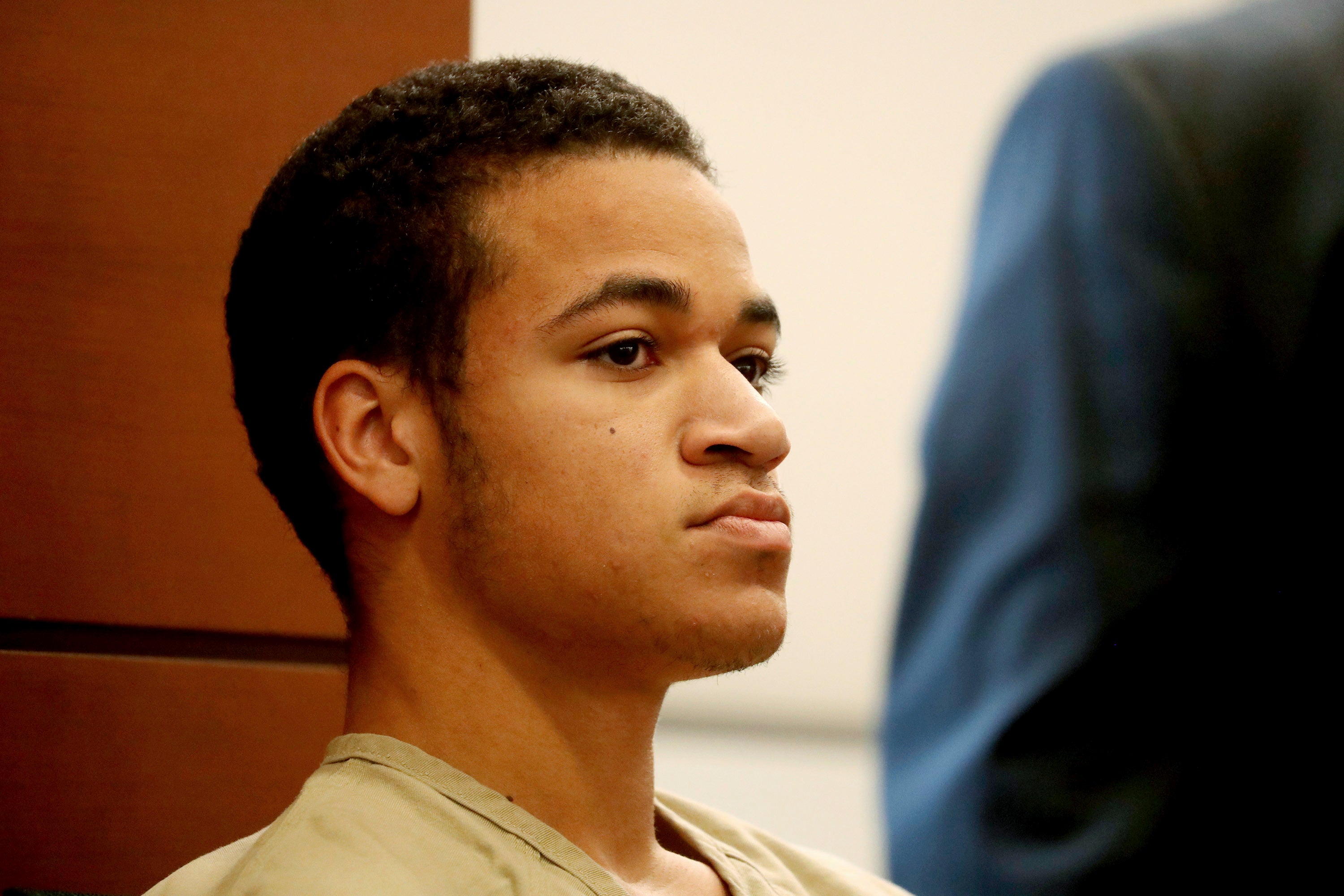

He had counselors in school and at home, according to DCF records, and he took medications. His mom told deputies he also had obsessive-compulsive disorder and anger issues. He had been diagnosed with a string of disorders and conditions: depression, attention deficit hyperactivity disorder, emotional behavioral disability and autism, records from the state Department of Children and Families show. Lynda Cruz was left to raise the two boys alone. She said, ‘What’s the matter, did Daddy punish you?’ Just as clear as day, he said, ‘Nope. “Nikolas came down the hallway and he went to his room, and he was crying. His mom was in the kitchen, the friend said. When Nikolas was 5, he was in the den with his father. The boys were raised Catholic and had their communions and confirmations, the family friend said.īut their life story soon took an unexpected turn. A fence slat on Liberty Park’s perimeter is still emblazoned with the name “Nikolas J. Lynda Cruz was a stay-at-home mom, a dedicated mother who ferried the boys to Zachary’s sports events and involving them in the building of Parkland’s Liberty Park, the friend said. “They built another wing to the house, and the kids just had plenty to do.”Ī golfer and “suit-and-tie man,” the elder Cruz didn’t own guns, Aaronson said. I remember Roger having this entire, like, really extended-type jungle gym out back in the backyard being built,” he said. Roger Cruz was in marketing and he traveled a great deal for business.īut “when he was home,” Aaronson said, “he was all about his kids.

“They had a very close relationship with their father,” Ben Aaronson, who was close to Roger and Lynda Cruz, said of the boys. Lynda and Roger adopted that boy, Zachary, as well. Less than a year later, the same woman got pregnant again. The baby’s father was unknown, the friend said. They insisted the birth mother pass drug tests and visit the doctor. He was 61 and had four kids from a previous marriage.Ī close family friend and former neighbor, who asked that her name not be published, told the South Florida Sun Sentinel that the couple arranged the private adoption through an attorney. She and Roger Cruz had married late in life. One day before her 49th birthday, Lynda Cruz’s adopted son was born, Sept. His wish was granted, and Marjory Stoneman Douglas was that school. He desperately wanted to attend a “regular” high school, school records say. The young man has been described as “lost,” “lonely” - and violent. He confessed to shooting 33 former classmates, coaches and teachers at Marjory Stoneman Douglas High School in Parkland, the school he was kicked out of in his junior year 17 of his victims died.Ĭruz’s troubled life is coming into sharper focus, through police and school records and interviews with friends, family and former classmates. Lynda and Roger Cruz knew their new son had challenges, but neither lived to see what he was capable of.Ĭruz sits in the Broward County main jail. And in the outside world, he never made it to 20.

By the time he was 16, he was preoccupied with wars, death and killing, school records reveal. By the time he was 6, he’d witnessed his father’s death. She was elated.īy the time he was 3, he had been diagnosed with developmental delays. Kravitz said Cruz had a fear of abandonment because of his father’s death and his adoption and had an active “bad imagination.When Nikolas Jacob Cruz was born in South Florida 19 years ago, his adoptive mother, Lynda, was in the delivery room to watch him emerge. He once saw Cruz running around the house with an air gun, his limbs flailing wildly - a move he demonstrated for the jury. Steven Schusler, who lived across the street from the Cruzes from 2009 to 2015, said that when Nikolas Cruz was 10, his landlord called Cruz “the weird one” to his face, causing the boy “to curl up” like a salted snail. “He stood out like a sore thumb,” he said. When he was 8, he acted like a 6-year-old, at best, Kravitz said. Testimony has shown that his birth mother was a street prostitute who abused cocaine and alcohol and as a toddler he was developmentally delayed, often violent towards other children and teased and bullied for his small stature, unusual appearance and odd behavior.

The defense has focused on the mental and emotional problems Cruz exhibited from his earliest days. If one juror votes for life, that will be his sentence. The defense is trying to overcome the prosecution’s case, which featured surveillance video of Cruz, then 19, mowing down students and staff with an AR-15-style semiautomatic rifle as he stalked a three-story building for seven minutes, photos of the aftermath and a jury visit to the building.įor Cruz to receive a death sentence, the jury must be unanimous.


 0 kommentar(er)
0 kommentar(er)
